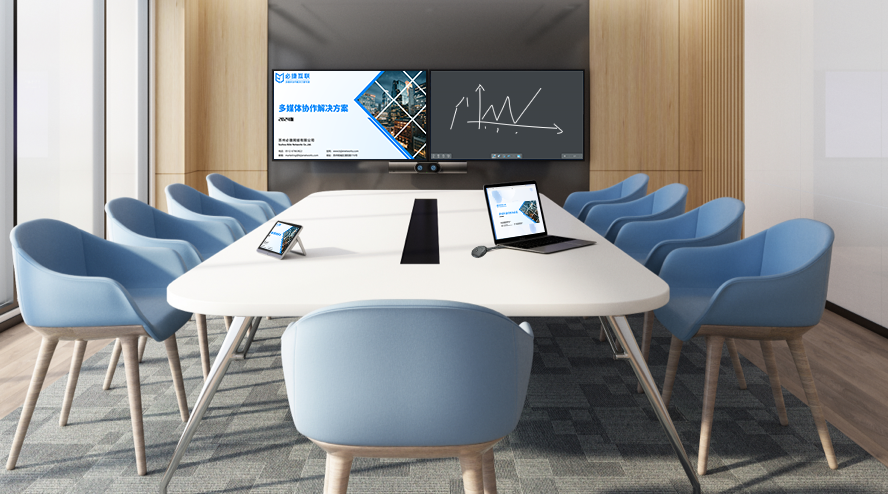Choosing a suitable set of
meeting screen mirroring devices for an enterprise is a key decision to improve collaboration efficiency. Faced with numerous brands and models, how to make the best choice? This procurement guide will point you in the right direction.
- Small Conference Rooms: Entry-level screen mirroring devices are sufficient, as long as they support simultaneous mirroring for 1-2 people.
- Medium to Large Conference Rooms: Devices need to support 4-screen split (or more) multi-screen interaction functions to meet the needs of multi-person collaboration.
- For ordinary document sharing, 1080P resolution is enough.
- For scenarios involving 4K design drawings or video demonstrations, be sure to choose devices that support 4K ultra-high-definition (UHD) output.
Devices must support the three mainstream protocols: Google Cast, Miracast, and AirPlay. This ensures seamless connection for any type of device (mobile phones, computers, tablets).
Choose devices that support dual-band Wi-Fi (2.4G/5G). The 5G Hz band can ensure more stable and smoother wireless mirroring, avoiding interference common in the 2.4G band.
Confirm that the device supports multiple connection methods, such as USB button, software launch, and mobile phone QR code scanning. This caters to different user habits and ensures flexibility in use.
Check if the device supports a host management mode—this allows the host to control mirroring permissions (e.g., approving/rejecting mirroring requests) and add annotations to shared content, ensuring orderly meetings.
Understand the device’s encryption mechanism (e.g., data transmission encryption). Verify if it provides a guest mode to isolate the company’s internal network, preventing data leakage when external visitors connect.
- Is the device easy to deploy? (e.g., plug-and-play without complex configuration)
- Does it support over-the-air (OTA) firmware updates?
- Is the after-sales service comprehensive? (e.g., timely technical support, warranty coverage)
Well-known brands in the market include
Yuelu,
BenQ, and
MAXHUB. Before purchasing, it is recommended to request product trials—this allows you to experience firsthand the convenience of mobile mirroring and the smoothness of multi-screen interaction, ensuring the device matches your enterprise’s actual needs.

